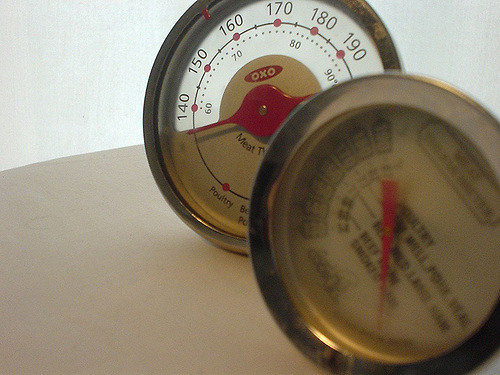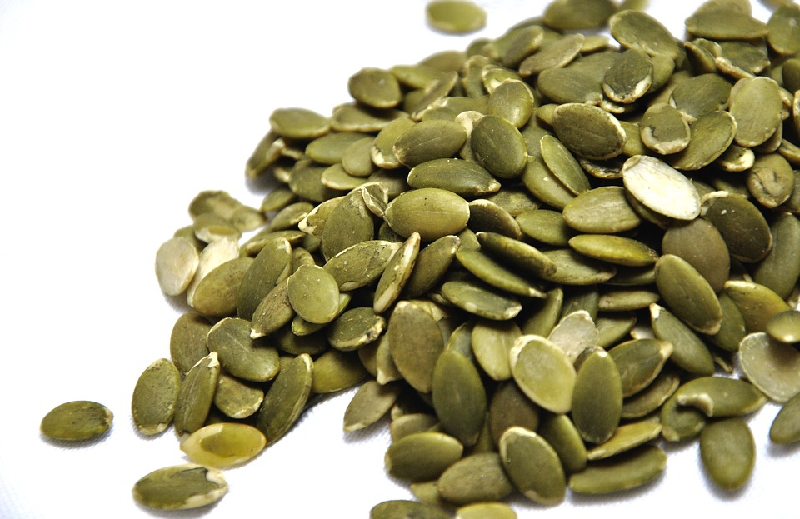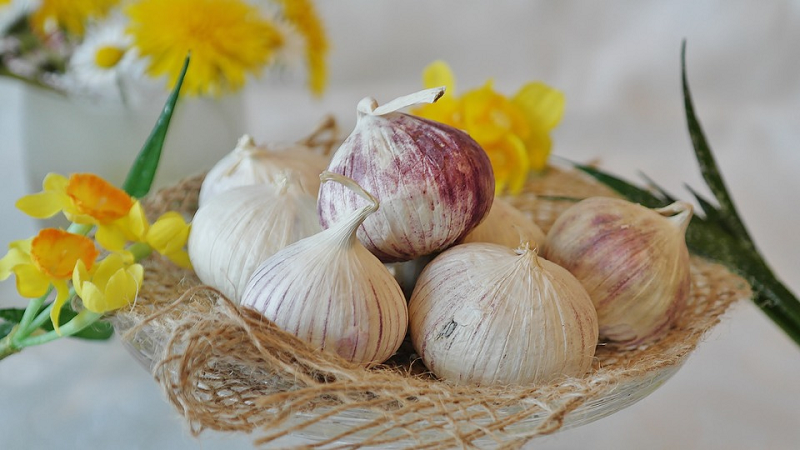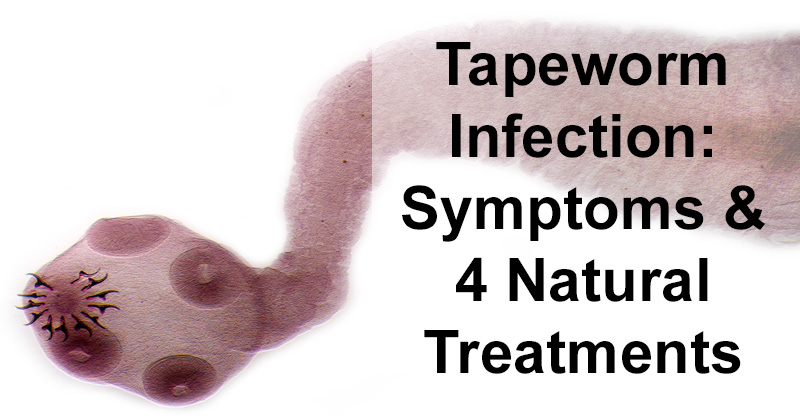Tapeworm infections are caused by eating food or water that is contaminated with tapeworm eggs or larvae. If you consume the eggs, they can migrate outside your intestines and form larval cysts in body tissues and organs. However, if you ingest tapeworm larvae, they develop into adult tapeworms in your intestines. (1) Tape worm symptoms vary and include, for example, an upset stomach, loose stools, and weight loss. To help rid of the infection, consider a natural tapeworm treatment method. For example, following a tapeworm diet can help fight symptoms as well as prevent complications. Learn more about steps you can take to prevent and treat a tapeworm infection below.
But first, let’s take a look at the common symptoms you will likely experience with a tapeworm infection.
Common tapeworm symptoms include: (2)
- An upset stomach or nausea
- Diarrhea or loose stools
- Muscle weakness and fatigue
- Cramps and abdominal pains
- Changes in appetite, including feeling ravenous despite eating, or loss of appetite
- Weight loss ( despite eating enough)
- Signs of nutrient deficiencies, including cognitive problems like poor concentration and fatigue
- Trouble sleeping
- Changes in stool and sometimes segments of the worm appearing in a bowel movement. Some people can even feel a small piece of the tapeworm exit the anus or notice a moving, ribbon-like worm inside the toilet bowel.
- Animals, such as dogs or cats, can also become infected with tapeworms. Tapeworm symptoms in dogs or cats are similar to that in humans, such as vomiting, loss of appetite, low energy or diarrhea.
Try these 4 tapeworm treatments to help prevent and treat a tapeworm infection:
1. Thoroughly Cook Meat and Fish

As eating raw or under-cooked meat and fish is the most common cause of tapeworm infections, an effective way to prevent an infection. If you eat meat or fish, be sure to cook it thoroughly, using a meat thermometer to ensure the appropriate temperature is reached before consumption. You should also avoid consuming raw fish, such as sushi.
Cook animals meant for consumption to a temperature of at least 135 degrees Fahrenheit. You can also freeze meat for several days to kill off cysts and eggs. Furthermore, you should note that drying or smoking meat and fish is typically into enough to kill all eggs. (3)
2. Parasitic Cleanse

A parasitic cleanse can be an effective tapeworm treatment. Furthermore, eating a healthy diet can lower the risk of becoming infected in the first place, as it boosts your immunity. A tapeworm diet also excludes risky foods, such as pork.
Following this tapeworm diet as part of a parasitic cleanse:
- Don’t eat pork: It can carry parasites and worms. If you eat pork frequently, there is a good chance that you might ingest a parasite. If you can, eliminate pork from your diet permanently. (4)
- Eat more organic vegetables. Include plenty of big salads that feature a variety of fresh vegetables, make your own veggie juices, soups or smoothies (include dark leafy greens). Also be sure to consume garlic, onions and fresh herbs, as these items are especially helpful in fighting parasites and tapeworm symptoms. Ginger and oregano can be particularly beneficial.
- Remove added sugar. Sugar can make inflammation worse as well as contribute to gut imbalances.
- Avoid refined carbs and grains. Many of them can break down into sugar and worsen inflammation.
- Reduce or possibly eliminate fruit. Until the infection is gone, you’ll want to stick to one serving daily, or less. However, the exception is papaya and papaya juice, as this fruit is naturally anti-parasitic. Remember, this is a short-term treatment. You’ll want to take a break from cleanses to resume eating a normal, healthy diet, with daily servings of fruit.
- Consume coconut oil, as well as coconut meat and milk. Coconut has antibacterial and antimicrobial properties.
- Eat chia seeds, pumpkin seeds, flaxseeds. They are full of fiber and protein.
- Include probiotic foods. Examples of this are kefir and sauerkraut, which help improve the health of the gut.
- Stay away from processed foods and alcohol. Eating these can lower your immune system function, which can make detoxification more difficult.
3. Anti-Parasitic Supplements

In addition to a tapeworm diet, certain supplements work great as a tapeworm treatment. Try the following to see a reduction in tapeworm symptoms and to rid of the infection:
- Paracomplete: This is a parasite cleanse supplement that includes thyme leaf, berberine sulfate, oregano, grapefruit seed extract and uva ursi leaf. These herbs are great for tapeworm infections because they are antiparasitic, antifungal, and antibacterial.
- Grapefruit seed extract: Be sure to read directions on the packaging for dosage recommendations, which vary depending on strength
- Black walnut: This is an herb used historically for the treatment of parasites. Take 250 milligrams three times daily.
- Garlic: Use both raw garlic in recipes and garlic essential oil
- Wormwood: Take 200 milligrams three times every day.
- Oregano oil: This also has antibacterial and anti-parasitic effects. Take 500 milligrams four times daily, but be wary about taking it for too long a duration.
- Olive leaf: Do you have access to an olive tree? If so, you can use the leaves to make tea. Bake them at 150 degrees until they are dry. Then, steep in hot water for 10 minutes and drink several cups a day with raw honey or lemon.
- Clove oil: Take 500 milligrams four times every day. Alternatively, drink four cups of tea made using clove essential oil. (5)
4. Improve Detoxification Through Colonics
Colon cleanses can also help prevent a tapeworm infection. Aim for two to three per week. Furthermore, try a coffee enema or perform a salt water flush. (6)
Following these natural health tips can help keep your body protected from ingesting parasites like tapeworm infections. Proper diet and other preventative measures will, in the long run, keep you healthier and save you from the headache of dealing with tapeworms and the complications that can arise from an infection.


